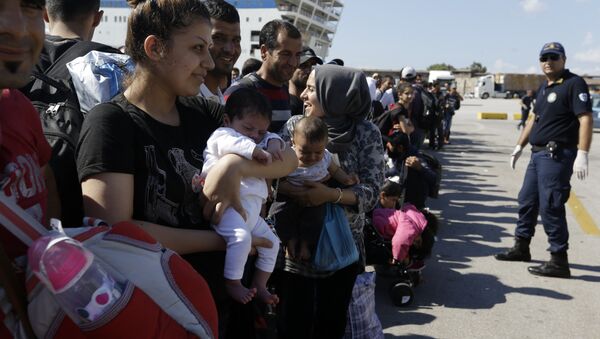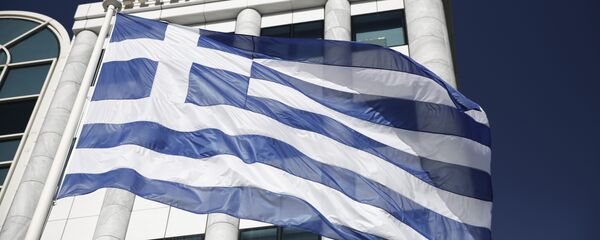According to Greek officials, approximately 230,000 undocumented immigrants have arrived in Greece in the last eight months. Greece is one of a number of EU member states struggling to cope with a massive inflow of refugees from conflict-torn countries in the Middle East and North Africa.
"Despite some negative voices from the international press, Greece did its best on humanitarian and the technical levels to assist [the refugees], and that was not easy, because it was really quite difficult to sustain. [We faced] a fully-fledged tourist period and at the same time – assist refugees in the thousands," Koumanakou said.
The ambassador praised the way the Greek people and the state authorities had handled themselves in the given circumstances, dealing simultaneously with a refugee crisis and the high tourist period, to ensure that the number of tourists vacationing in the country this summer was not affected.
Koumanakou pointed out that cooperation with other countries outside the European Union is crucial to tackling the refugee crisis.
Europe is currently struggling with the largest migrant crisis since World War II, as thousands of refugees flee conflict-torn Middle Eastern and North African countries, trying to reach refuge in the European Union.
According to the European Commission, over 500,000 undocumented migrants have arrived in the bloc since the beginning of 2015.
Greek Ambassador to Russia Danai-Magdalini Koumanakou also said that the results of the snap parliamentary elections in Greece prove that people believe Alexis Tsipras, elected as prime minister for the second time in 2015, will keep the country within the European Union.
The left-wing Syriza party won the parliamentary elections in Greece, held on September 20, after then-Prime Minister Alexis Tsipras resigned from the post in August to bring about snap elections in a bid to gain public support for the austerity reforms he backed to secure financial aid from international creditors and keep the country in the eurozone.
"The outcome of the last elections has proven, even to the most negatively disposed, that what the prime minister had been saying throughout was right and real, and it has now been proven beyond any doubt that people have voted for Tsipras having in mind that he is the prime minister who is going to lead Greece safely through the third package and safely anchored with the European Union," Koumanakou said.
"The broad lines have been agreed and now we come to face the necessary negotiations for the execution of the package. Naturally, the government that has negotiated the package, is in the privileged position to continue this negotiation and friendly talks with partners and creditors," she said.
Koumanakou stressed that in the negotiations with the creditors, priority will be given to agreeing the much needed debt restructuring.
She anticipates that the Greek government will initiate talks on the measures needed to implement the package, adding that a final decision needs to be mutually agreed and calculated before negotiations about debt restructuring can begin "in due course."
Greece has been bailed out by international money lenders several times over the past decade on the condition that strict austerity measures are implemented in the country to bring down public spending. The country owes more than $270 billion to its main international creditors, which are the International Monetary Fund, the European Central Bank and some eurozone nations.





